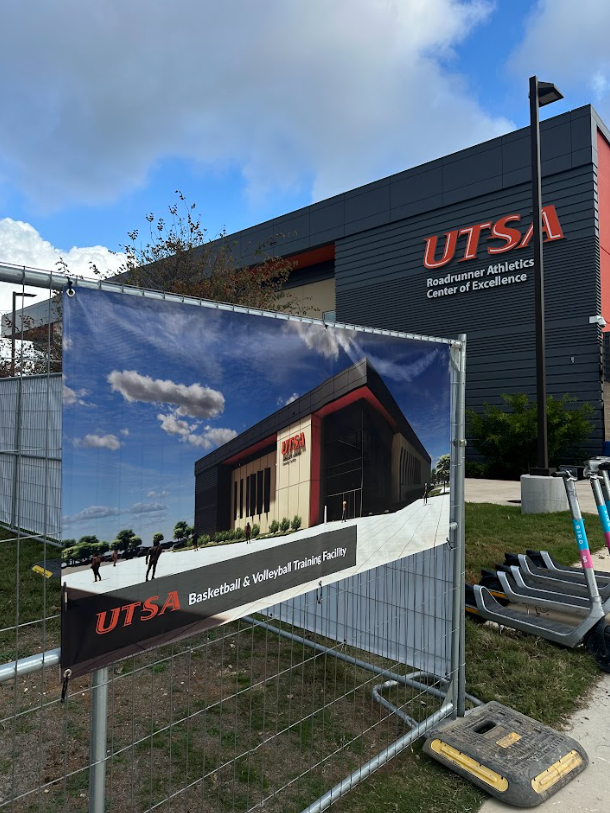

Photo courtesy of Mark McClendon , UTSA
With Camp Bullis, Randolph Air Force Base and San Antonio Military Medical Center (SAMMC), San Antonio has always had a heavy military presence. UTSA houses a large veteran community; approximately 10 percent of the student population has some form of military affiliation.
Given this large community, there is a need to integrate veterans into a student’s academic lifestyle.
The Student’s Veteran Association (SVA) is a student-led organization that is designed to cater to any and all veteran needs, with plans to further serve those that have previously served.
SVA focuses on being a “one-stop shop” for veterans that come with questions about financial assistance, academic help and counseling services, and propose initiatives to better serve the veterans on campus. President of SVA, Tyler Wynne, plans on creating a veteran-only orientation that is separate from the transfer-student orientation.
“We want to get (the veterans) to have the opportunity to be face-to-face with us. They have different needs and are at different points in their lives, and our job is to get them in front of the right people,” Wynne said.
“Veterans don’t want to be treated like kids coming from high school to college. They’ve been around the world, they’ve been screamed at and shot at, and so they’re a different group.”
In addition to creating a veteran-exclusive orientation, Wynne is also hoping to create a center for veterans. The lounge area will be a gathering place for veterans to go and meet other veterans, as well as a place that will offer counseling and fiscal services. While the plans are in the preliminary stages, all departments involved agree that a dedicated veteran’s area is vital.
“When you are in the military and you go to a new base, you do an indoc. They give you a packet and say, ‘Here’s everything that you need to know, go do your paperwork.’ Then you go into this one building, walk down this hall and get everything done. That’s kind of what we want to do,” Wynne said.
“We want to pull everything into one spot and have offices in the new space that once a week a representative from one department comes and the veterans can come and see them.”
SVA works with the President’s Office in order to ensure that the initiatives the organization is pursuing are both plausible and beneficial. Administrative Associate to the Director of Communications and Military Liaison, Rosemary Segura, explains the relationship her office has with SVA.
“SVA seeks us out when they need advice. (Tyler) comes to us when he needs to know who to talk to about certain things or to create networks outside of campus,” Segura said. “They’re a very critical group that helps to integrate the veterans into the campus community and student body. Tyler and his team make those of us outside of that circle more aware of the issues that veterans are facing.”
Director of Communications and Military Liaison, Elvira Jacquez, commented on her role in ensuring that both the President’s Office and SVA is meeting the needs of the veterans on campus. Multiple committees that Jacquez and Wynne are apart of — as the Veteran Services Advisory Committee (VSAC) and the Veteran Success on Campus (VSOC), are designed to have a select group of people that are dedicated to specific aspects of veteran success.
“We are constantly trying to find support and looking for things that the veterans want and need. Tyler will come to me saying that veterans need more help with career services, advising or they need a separate orientation, and then I try to give him the networks and resources that can help him with his initiatives,” Jacquez said. “SVA is so important because they are the voice of the veterans, and the louder the voice, the more support they will receive.”
With a multitude of services that provide academic, social and fiscal counsel, it can be frustrating for veterans to receive appropriate assistance. SVA is a student organization with emphasis on improving the academic and social experience of veterans on campus and consolidating departmental services.
“The goal of SVA is to pull together and provide access to all the veteran networks. Everybody on campus that is trying to deal with veterans at the student level knows they can come to me and then we try to put them in front of the veterans,” Wynne said. “(SVA) is kind of the bottleneck that everyone can go to, and we are always trying to get veterans in so they know what they have access to.”






